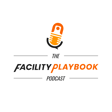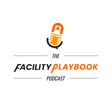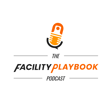
Heartland Soccer: Managing Growth and Tech Innovations
This week on the Facility Playbook Podcast, we talked to Shane Hackett, Executive Director of Heartland Soccer Association. They boast the title of largest soccer league and tournament host in the country, and they have the systems to back it. Heartland Soccer Association’s growth can be attributed to their commitment to investing in their community and continuing to stay up to date with the latest tech. In this blog, we break down some of their success stories of growth, how they handle training refs, tips for league management, and staying up to date on technological advancements in the industry. To hear insights from one of the top facilities Heartland built, check out our episode with Scheels Soccer Complex!
Learn More about Facility Ally:
https://facilityally.com/
Learn more about Heartland Soccer Association:
https://www.heartlandsoccer.net/
Be sure to subscribe here, and follow our social channels for more content
Instagram: https://www.instagram.com/yourfacilityally/
TikTok: https://www.tiktok.com/@facilityally
YouTube: https://www.youtube.com/@facilityally
Facebook: https://www.facebook.com/facilityally


